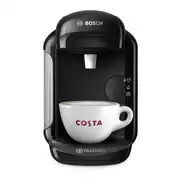 OK 3rd problem class one appliance with no exposed metal work to connect test lead too how can I carry out the earth bond test given it is a class 1 appliance and not a class 2 appliance like this
OK 3rd problem class one appliance with no exposed metal work to connect test lead too how can I carry out the earth bond test given it is a class 1 appliance and not a class 2 appliance like this 
 OK 3rd problem class one appliance with no exposed metal work to connect test lead too how can I carry out the earth bond test given it is a class 1 appliance and not a class 2 appliance like this
OK 3rd problem class one appliance with no exposed metal work to connect test lead too how can I carry out the earth bond test given it is a class 1 appliance and not a class 2 appliance like this 
Alex13:Sparkingchip:
I recently stood in a Home in Multiple Occupation looking at a Teflon coated iron that needed PAT that had been purchased within the last year, since I last did the PAT, and entering onto the appliance log a copy of which had to be submitted to the Local Council Housing Team so the HMO licence could be renewed.
So how do you PAT a virtually new Teflon coated iron?
https://medium.com/@ironsexpert/steam-iron-soleplate-types-ceramic-stainless-titanium-62c60efefe7cSurely this would again depend on the construction class of the appliance as how it would be tested if no exposed earthed metal work is on the appliance but is not marked class 2 then must be treated as a class 1 appliance if it then fails said earth bond test then surely it must class as a fail, passing it is surely as bad as an overload circuit that keeps blowing fuses advice don't turn on to many things at once rather than solving the reason for the overloading occuring it's like putting a plaster over a gaping wound that requires stitching then saying it's fixed it's not done right the work must be completed to a high standard after all I take pride in my work and put my name to it if I don't feel something is safe I make it safe as possible to minimise risk then report it before continuing if something is of immediate danger then I will make it safe and remove from service before reporting as if it is wrong im responseable no different to any pat tester spark or other job where you take responsibility for your work as well as the health and safety of others throughout the work you do or the workplace you are in
I think that's the wrong premise.
I'll explain something first.
If we are talking about a coffee machine, the exposed-conductive-parts in this instance may well be covered for a very good reason.
The exposed-conductive-parts are likely to be a heating element. The heating element may well be connected to a metal boiler can - although this might be plastic.
Alex13:Sparkingchip:
I recently stood in a Home in Multiple Occupation looking at a Teflon coated iron that needed PAT that had been purchased within the last year, since I last did the PAT, and entering onto the appliance log a copy of which had to be submitted to the Local Council Housing Team so the HMO licence could be renewed.
So how do you PAT a virtually new Teflon coated iron?
https://medium.com/@ironsexpert/steam-iron-soleplate-types-ceramic-stainless-titanium-62c60efefe7cSurely this would again depend on the construction class of the appliance as how it would be tested if no exposed earthed metal work is on the appliance but is not marked class 2 then must be treated as a class 1 appliance if it then fails said earth bond test then surely it must class as a fail, passing it is surely as bad as an overload circuit that keeps blowing fuses advice don't turn on to many things at once rather than solving the reason for the overloading occuring it's like putting a plaster over a gaping wound that requires stitching then saying it's fixed it's not done right the work must be completed to a high standard after all I take pride in my work and put my name to it if I don't feel something is safe I make it safe as possible to minimise risk then report it before continuing if something is of immediate danger then I will make it safe and remove from service before reporting as if it is wrong im responseable no different to any pat tester spark or other job where you take responsibility for your work as well as the health and safety of others throughout the work you do or the workplace you are in
I think that's the wrong premise.
I'll explain something first.
If we are talking about a coffee machine, the exposed-conductive-parts in this instance may well be covered for a very good reason.
The exposed-conductive-parts are likely to be a heating element. The heating element may well be connected to a metal boiler can - although this might be plastic.
We're about to take you to the IET registration website. Don't worry though, you'll be sent straight back to the community after completing the registration.
Continue to the IET registration site